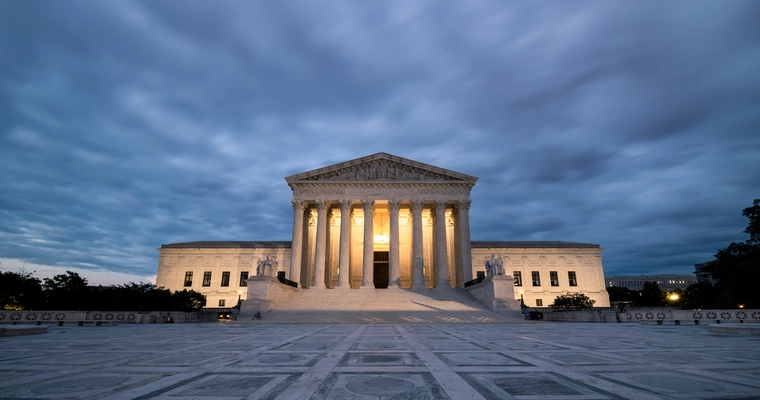What the leaked SCOTUS draft opinion means for Roe v. Wade and abortion rights
And why Dobbs v. Jackson Women's Health Organization is such a critical case

Earlier this week, a draft majority opinion was leaked in the Dobbs v. Jackson Women’s Health Organization case that is being decided by the U.S. Supreme Court. This case is critical because it gives the Supreme Court the opportunity to overturn Roe v. Wade, the landmark decision that recognized abortion as a constitutional right. The headlines have been confusing though, leaving lots of people wondering what the status of abortion rights is now in the United States. So we’re answering frequently asked questions to make sure everyone has the best possible information about what’s going on.
What is Roe v. Wade?
Roe v. Wade is the Supreme Court decision that established a constitutional right to an abortion. A subsequent case, Casey v. Planned Parenthood, affirmed that right but also allowed states to put restrictions on abortion before viability. However, Casey also stated that those restrictions could not put an undue burden on a person’s access to abortion care. Courts have debated what “undue burden” means in many subsequent cases, but until now the constitutional right to abortion itself has not been before the court since 1992 when Casey was decided.
What is viability?
Viability is the stage of pregnancy when a fetus has developed enough that it is able to survive outside the uterus with medical help. It usually happens around 24 to 26 weeks of pregnancy, but it depends on how the fetus is developing and can be different for every pregnancy. A health care provider can determine whether a pregnancy has reached viability.
Why are abortion laws different in different states?
Roe and Casey established and then affirmed a federal protection for abortion before viability. Casey allows for restrictions but not those that put an undue burden on the ability of the pregnant person to exercise their constitutional right to abortion. However, it’s up to each state to interpret that and decide what, if any, restrictions they want to place on abortion.
If individuals or advocates feel a state law is placing an undue burden on people seeking abortion, they can sue the state. This has happened many times. Sometimes these suits are successful and the restriction is struck down, but many restrictions have been upheld and have created additional barriers to abortion access. That’s why some states have laws that require things like mandatory waiting periods and parental involvement for minors and other states do not.
What does it mean for Roe to be overturned?
If Roe is overturned, there will no longer be a federal protection for abortion access, which means states that want to severely limit or ban abortion care will be able to do so. It’s estimated that roughly half of all states will move to ban abortion if Roe is overturned.
Has Roe been overturned?
No. On May 2, 2022, a draft majority opinion from the Supreme Court was leaked in the case of Dobbs v. Jackson Women’s Health Organization. This case does give the Supreme Court an opportunity to overturn Roe and Casey, but what was leaked was just a draft, not the final ruling. The Supreme Court justices can change their votes until the decision is made final and formally released.
If Roe hasn’t been overturned, how are states able to ban abortion so early in pregnancy?
States like Texas and Oklahoma have implemented bans on abortion beginning at around 6 weeks of pregnancy. These laws DO violate Roe and Casey, but the Supreme Court did not allow a legal challenge to the Texas law to continue for procedural reasons (meaning that the court didn’t address whether the Texas law violates the constitution), and to date a judge in Oklahoma has ruled that the law there can go into effect.
Will abortion be illegal nationwide if Roe is overturned?
No. Roe being overturned is not the same thing as there being a federal ban on abortion. Roe being overturned would mean the protection that was in place has been removed, and the states have no limitations on what they can decide to do. Some states have legal protections already in place that will ensure that abortion remains legal there no matter what happens with Roe.
We are tracking this situation closely. Please check Abortion Finder for updates.
How do you feel about this article?

Find a method that fits your body and your life with our interactive method explorer.
view birth control options